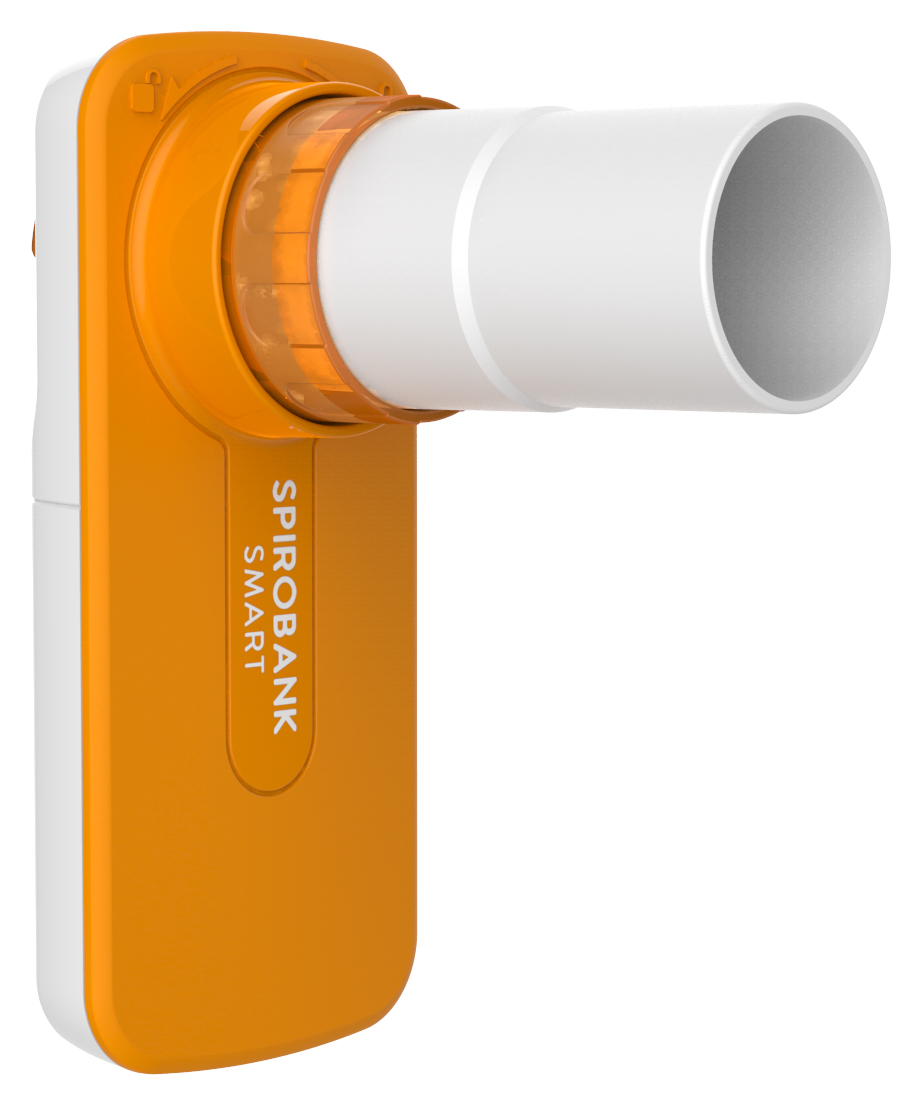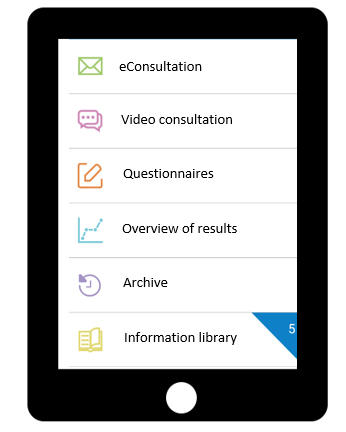Karen Moor and Marlies Wijsenbeek discuss how pulmonary fibrosis patients can be helped by the new possibilities of eHealth apps
Pulmonary fibrosis is a group of rare lung diseases characterised by scarring of the lung tissue. Idiopathic pulmonary fibrosis (IPF) is the most common form of pulmonary fibrosis and has an inevitably progressive disease course, with a median survival of only 3-5 years after diagnosis[1]. Most common symptoms of pulmonary fibrosis are cough, dyspnea, and fatigue, often deteriorating over time.
Life with a chronic disease
Living with a chronic disease, with a high symptom burden and uncertain prospects, has a major impact on daily lives of most patients and their families[2]. Much efforts have been made in recent years to raise more awareness for pulmonary fibrosis and to improve care for patients. However, despite these efforts, important gaps in care were identified in a recent European survey among patients and healthcare providers, conducted by the European Idiopathic Pulmonary Fibrosis and Related Disorders Federation (EU-IPFF). Patients reported the need for better information and education, improved access to (specialist) care, and a greater focus on symptom-centered management[3].
Novel eHealth applications have the potential to address some of these identified gaps in care, to enhance personalised treatment for individual patients with pulmonary fibrosis, and thereby improve quality of care. eHealth applications allow for monitoring of lung function, symptoms, and side-effects of medication at home, and could thereby lead to early identification of disease deterioration or other inter-current events. Patients collect their own data at home and can keep track of their progress over time. Consequently, patients gain better insights in their disease course, enabling self-management.


Previously, we have shown that online home monitoring of lung function and symptoms is feasible and reliable in this patient population, and yielded a high patient satisfaction[4]. In follow-up of this pilot study, a multicentre randomised controlled trial (RCT) has been conducted in the Netherlands5. In this RCT, patients with IPF were randomised to either a comprehensive online home monitoring program on top of standard care or standard care alone, for a period of 24 weeks. Patients performed daily lung function measurements (home spirometry) with a Bluetooth-enabled spirometer (figure A), and completed questionnaires about quality of life, symptoms, and side-effects online. Data were directly sent to the hospital and were real-time available for patients and healthcare providers. The application is integrated with an automated feedback and alert system; alerts were sent in case of lung function decline, missing data, or burdensome side-effects. In addition, patients had access to an information library, an overview of results over time, and an option for electronic consultation with their treating physician (figure B).
The eHealth study
In this study, home monitoring tended to increase psychological wellbeing, and allowed for individually-tailored treatment adjustments. Overall patient satisfaction and compliance with the home monitoring program were high. Moreover, daily home monitoring did not lead to anxiety or depressive symptoms, and was not perceived as burdensome by patients. Notably, the majority of patients wished to continue the use of the home monitoring program for regular care purposes after the end of the study period[5]. These findings support the idea that eHealth solutions have the potential to play an increasingly important role in care and research for patients with pulmonary fibrosis in the coming years.
Recently, video consultations have been integrated into the home monitoring program. The combination of video consultations and home-based measurements of lung function facilitates replacement of hospital visits by remote consultations. Remote follow-up using video consultations can lower the burden of frequent hospital visits on patients and caregivers, and has the potential to improve healthcare efficiency and reduce costs.
We now use this comprehensive online home monitoring program, including video consultations, for the remote follow-up of patients during the current coronavirus disease-19 (COVID-19) pandemic. In this way will we be able to guarantee the continuity of care for this patient group. As the COVID-19 pandemic is expected to last longer, eHealth applications should be further developed, tested, evaluated, and integrated in daily clinical practice, not only for patients with pulmonary fibrosis, but also for many other chronic conditions.
References
1 Lederer DJ, Martinez FJ. Idiopathic Pulmonary Fibrosis. N Engl J Med 2018: 378(19): 1811-1823.
2 Sampson C, Gill BH, Harrison NK, Nelson A, Byrne A. The care needs of patients with idiopathic pulmonary fibrosis and their carers (CaNoPy): results of a qualitative study. BMC Pulm Med 2015: 15: 155.
3 Moor CC, Wijsenbeek MS, Balestro E, Biondini D, Bondue B, Cottin V, Flewett R, Galvin L, Jones S, Molina-Molina M, Planas-Cerezales L, Prasse A, Prosch H, Russell AM, Viegas M, Wanke G, Wuyts W, Kreuter M, Bonella F. Gaps in care of patients living with pulmonary fibrosis: a joint patient and expert statement on the results of a Europe-wide survey. ERJ Open Res 2019: 5(4).
4 Moor CC, Wapenaar M, Miedema JR, Geelhoed JJM, Chandoesing PP, Wijsenbeek MS. A home monitoring program including real-time wireless home spirometry in idiopathic pulmonary fibrosis: a pilot study on experiences and barriers. Respir Res 2018: 19(1): 105.
5 Moor CC, Mostard R.L.M., Grutters J.C., Bresser P., Aerts J.G.J.V., Chavannes N.H., Wijsenbeek M.S. Home monitoring in patients with idiopathic pulmonary fibrosis: a randomized controlled trial. Am J Respir Crit Care Med 2020: In press.
*Please note: This is a commercial profile











